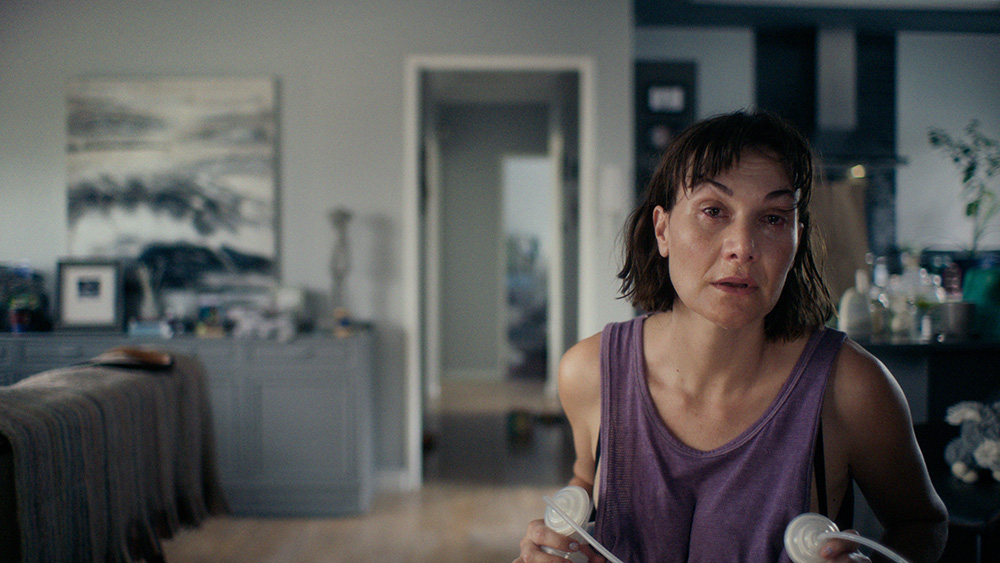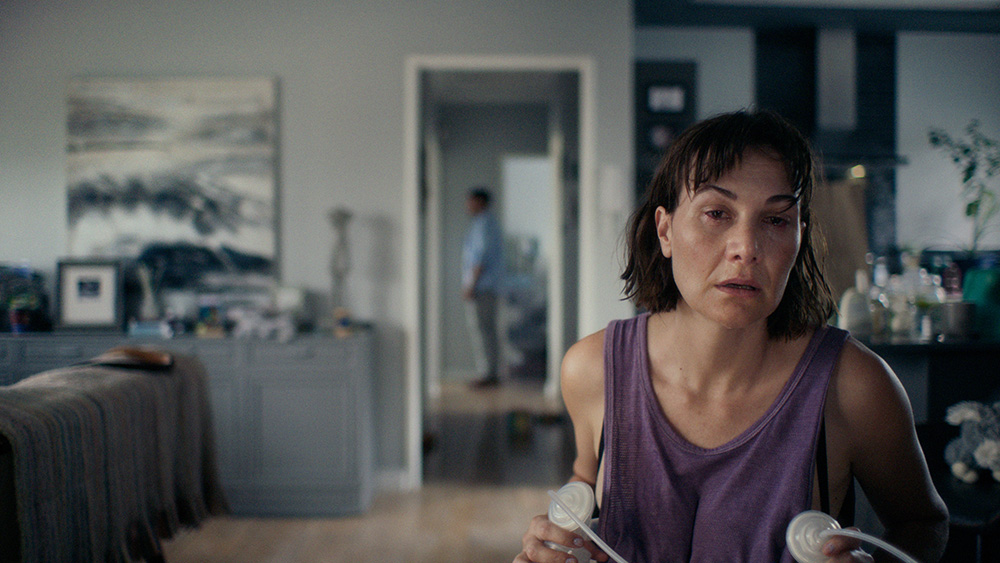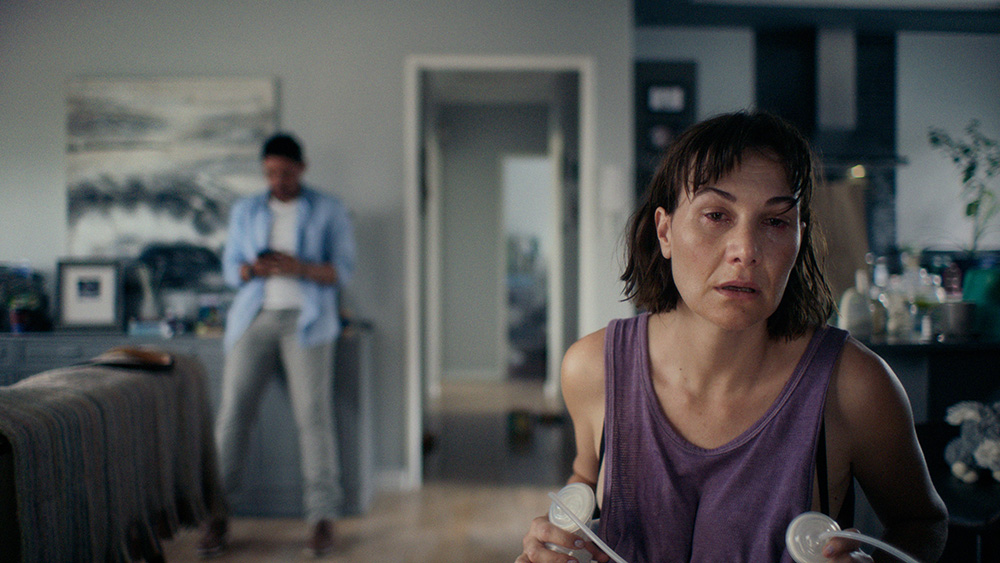


Shotgun Short: Selah
From the award-winning director and producer, Brett Michael Innes (Sink, Fiela se kind), comes Selah, a contained and disturbing exploration of postnatal depression (PND).
Erica Wessels stars as a sleep-deprived, struggling mother who grapples with the harsh reality of motherhood and the needs of her colicky baby. Throughout its ten-minute running time, the film gives voice to the often unspoken challenges of new parents who struggle to cope with the physical, emotional and mental demands of their role as caregivers.
Brett shared more about the film.
Please explain the origin and meaning of the film’s title Selah?
‘Selah’ is a word used 74 times in the Book of Psalms in the Hebrew scriptures. It is a liturgical-musical mark or instruction on the reading of the text, meaning ‘stop and listen’ or ‘silence’. As I considered the role of sound in the film, it felt like an appropriate title to describe the mother’s core motivations. Silence is all she craves, and it motivates her actions.
The set design plays an important role in telling a part of the story viewers don’t see. Can you share more about what went into the set design?
I love using mise-en-scène to communicate themes; this film was no different. Working closely with production designer Vicky Sawkins, we brought in elements that would communicate to the viewer what kind of woman we were watching, from family photos to the words ‘faith, hope, love’ on the wall, the chaos of having a baby, and a house that has an attractive design. We even included a statue of a headless woman by Marieke Prinsloo in Selah, which was also in my debut film Sink, as a tribute to the feature and a depiction of the theme of helplessness.
We never wanted people to be able to say it was poverty that led her here, but rather show that postnatal depression has nothing to do with economic status. Given how long this frame is on screen, we wanted to give the audience as much information as possible to ingest as they watched it play out.
The look and feel were rounded off by Nikkila Mann on hair and make-up, and Lori Myburgh on wardrobe. We wanted the characters to come across truthful and not stylised, which added to the film’s realism.
Without ever uttering a word, Erica Wessels does a phenomenal job portraying Maria. Please elaborate on casting Erica, and Keenan Arrison as Callum?
Erica Wessels has always been on my radar, but her performance in Donkerbos left me and producers Paulo Areal and Nick Ahlers convinced that no one else would make this work. How she can fill the space without dominating it, is profound.
With Selah being a static 10-minute film, we knew our lead had to be someone who could captivate the screen with very little happening. Erica went to some heavy places to craft the performance; you can feel it in her body when you watch the film. It was an honour to be two meters away from this performance.
Keenan came into the mix much later, with Callum’s character only meant to enhance the background. When the story started to grow, and I realised I wanted to give the husband a name and a presence, I called Keenan Arrison, an actor I’ve wanted to work with for quite some time. A heartbreaking part of the production is that his father, Derick Arrison, passed away a few days before filming, and while he was given the freedom to step back from the shoot, both he and his mother felt that he needed to do what he loves doing as a way of honouring the memory of his father.
Tell us about the filming process. How long did it take, and how big was the production team?
We had a tiny team of about ten people, and Selah was filmed over a day. Truthfully, it was one of the easiest shoots of our careers, one which had all of us asking, ‘What more should we be doing?’
I’m so glad we were secure in our craft to know that we didn’t need to do more, and that filmmaking doesn’t always have to be this manic rush of chasing time and battling a lack of resources. In an industry currently in flux, it was a gift to all of us to work on something that just felt purely creative.
The main theme of the film also appears in your previous work. Is it a challenge to take on such a complex topic?
I’m naturally drawn to complex social themes, so it wasn’t difficult to engage with the topic of PND. I love to know what makes people work, especially in the greys between binary thoughts and morality. I’m probably a bit of a masochist with these morbid interests, but if it results in work that is meaningful, I’ll lean into it.
